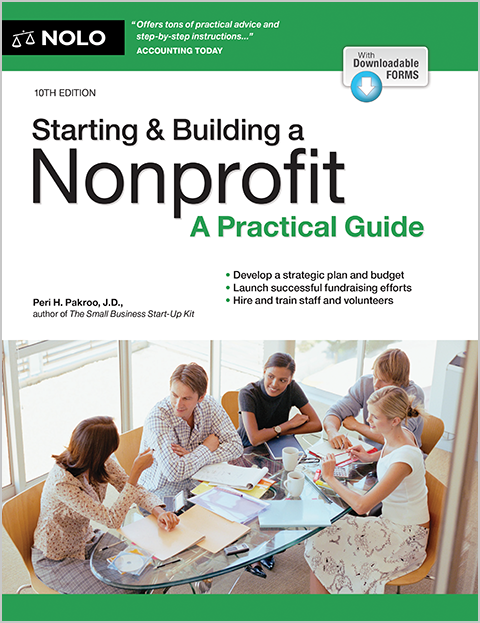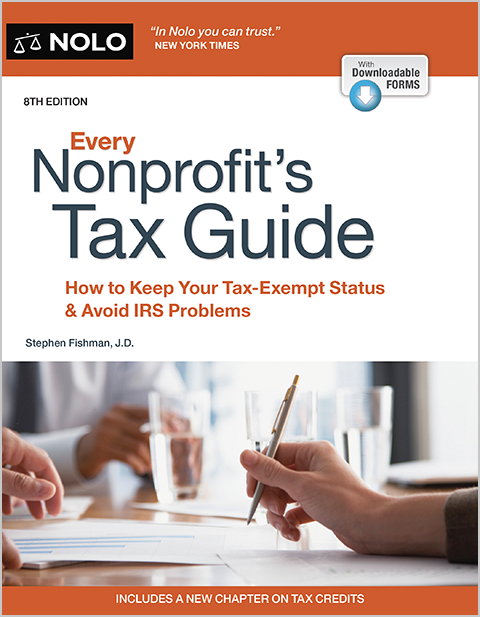Don’t ever reimburse a director or employee for expenses without complying with the accountable plan requirements.
It's common for nonprofits to reimburse directors and key employees for various work-related expenses such as car, travel, meals, and entertainment. These payments to employees can be made through advances, direct reimbursements, charges to a company credit card, or direct billings to the employer. The best way to reimburse or otherwise pay your nonprofit's employees or directors for any work-related expenses is to use an accountable plan (which also applies to volunteers). When your nonprofit pays such expenses under an accountable plan, three great things happen:
- your nonprofit doesn't have to pay payroll taxes on the payments
- the payments need not be reported to the IRS, and
- the employee or director won't have to include the payments in his or her taxable income.
To pass muster with the IRS, the accountable plan must require that:
- any expenses being reimbursed are incurred for a nonprofit business purpose
- the director or employee adequately accounts for the expenses within a reasonable period of time—no more 60 days after the expense was incurred, and
- the director or employee returns any amounts received in excess of the actual expenses incurred within a reasonable period of time—no more than 120 days after receipt of the excess money.
These strict rules are imposed to prevent directors and employees from seeking reimbursement for personal expenses (or nonexistent phony expenses) under the guise that they were work expenses. An accountable plan doesn't need to be in writing (although it's not a bad idea). All your nonprofit has to do is set up procedures for your employees to follow that meet the requirements.
Business Expenses Only
The expenses being reimbursed must be directly related to the work or services provided by the employee or director. The IRS doesn't want people to get reimbursed for any personal, family, or other nonbusiness expenses along with their business expenses. For example, an employee traveling to Las Vegas on nonprofit business cannot be reimbursed for a trip to the Grand Canyon. That is a personal expense that the employee must pay for out of his or her own pocket.
Adequate Accounting
It is crucial to have good records for expenses to be reimbursable under an accountable plan. At a minimum, every expense should be supported by documentation showing:
- what was purchased
- how much was paid for it, and
- who (or what company) it was purchased from.
The documentation can consist of cancelled checks, sales receipts, account statements, credit card sales slips, invoices, or petty cash slips for small cash payments.
Prompt Return of Excess Payments
Obviously, an employee or director can't be paid more than he or she actually spends on expenses. Employees and directors who receive an advance or some kind of allowance for expenses must keep track of what they spend and return any excess within 120 days after the expense was paid. If any excess is not paid back within the required 120 days, the difference is gross income that the employee must pay income tax on.
Payments Not Made Under an Accountable Plan
Any payments a nonprofit make to employees for business-related expenses that do not comply with the accountable plan rule are deemed to be made under an unaccountable plan. These payments are considered to be employee wages, which means all of the following:
- the payments must be included on the employee's IRS Form W-2, Wage and Tax Statement
- the employee must report the payments as income on his or her tax return and pay tax on them
- the employee may deduct the expenses—but only as a miscellaneous itemized deduction
- the employer must withhold the employee's income taxes and share of Social Security and Medicare taxes from the payments
- the employer must pay the employer's 7.65% share of the employee's Social Security and Medicare taxes on the payments
Payments to directors who are independent contractors made under an unaccountable plan are also taxable income to the director and must be reported to the IRS by the nonprofit if they exceed $600 per year.
The moral is clear: Don't ever reimburse a director or employee for expenses without complying with the accountable plan requirements.
To learn more about compying with IRS nonprofit standards, see Nolo's book, Every Nonprofit's Tax Guide.



